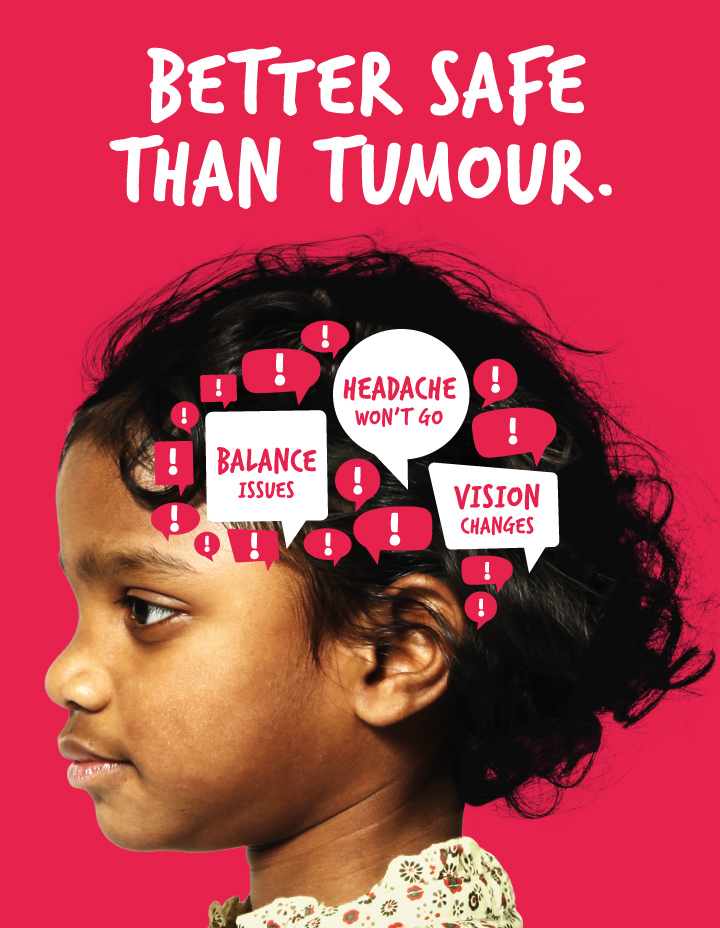Behaviour changes in a child
Many children will show behaviour changes on some occasions. These might be related to changes in their home or school life, developing into adolescence or ill health. But, behaviour changes are also symptoms of brain tumours. So, it’s important to be aware of this and other signs.

When changes in behaviour are caused by a brain tumour, a child will usually have other symptoms. You should look out for these carefully.
On this page:
- When might behaviour changes in a child be a sign of a brain tumour?
- What sort of behaviour changes will I notice in my child?
- I think my child has a brain tumour, what should I do?
Other symptoms
Use our Better Safe Than Tumour symptom checker to check for other brain tumour symptoms.
Talking to your doctor
Learn more about how to approach your GP.
Get your free Information Pack
Our Brain Tumour Information Pack can help you better understand your diagnosis and feel confident talking to your medical team.
When might behaviour changes in a child be a sign of a brain tumour?
If a brain tumour is causing behaviour changes in a child, the effects might happen over a period of days or weeks, and are likely to happen often. They could occur at any time and in any setting, like at school, at home, while playing or on a trip away.
What sort of behaviour changes will I notice in my child?
The most common behaviour changes caused by a brain tumour are severe tiredness and reduced energy. This is sometimes called lethargy. Signs of lethargy include:
- reduced activity levels
- more time spent resting
- loss of interest in activities they previously enjoyed
- becoming tired more easily or quickly than they used to
- struggling or progressing more slowly at nursery, school or college.
If you’re worried about your child, make an appointment with your GP as soon as possible. If they have two or more symptoms, you should request referral to a consultant as soon as possible.
If symptoms appear suddenly or are severe, visit A&E or call 999.
I think my child has a brain tumour, what should I do?
Brain tumours are rare. But, if you’re worried and a symptom persists or if your child has more than one symptom of a brain tumour then:
-
Talk to your doctor
GP appointments are usually quite short, so make sure you find out how to best prepare for your child’s appointment. - Get an eye test
If your child’s symptoms are limited to changes in vision and/or headaches, get their eyes tested by an optician before seeing your GP. - Go to A&E
If the symptoms are sudden or severe, you should go to your emergency department or call 999.
In this section

Know the Signs and Symptoms
Although brain tumours are rare, if you or a loved one are experiencing two or more of the signs and symptoms it’s important that you speak to your doctor to rule out a brain tumour.
Share your experiences and help create change
By taking part in our Improving Brain Tumour Care surveys and sharing your experiences, you can help us improve treatment and care for everyone affected by a brain tumour.